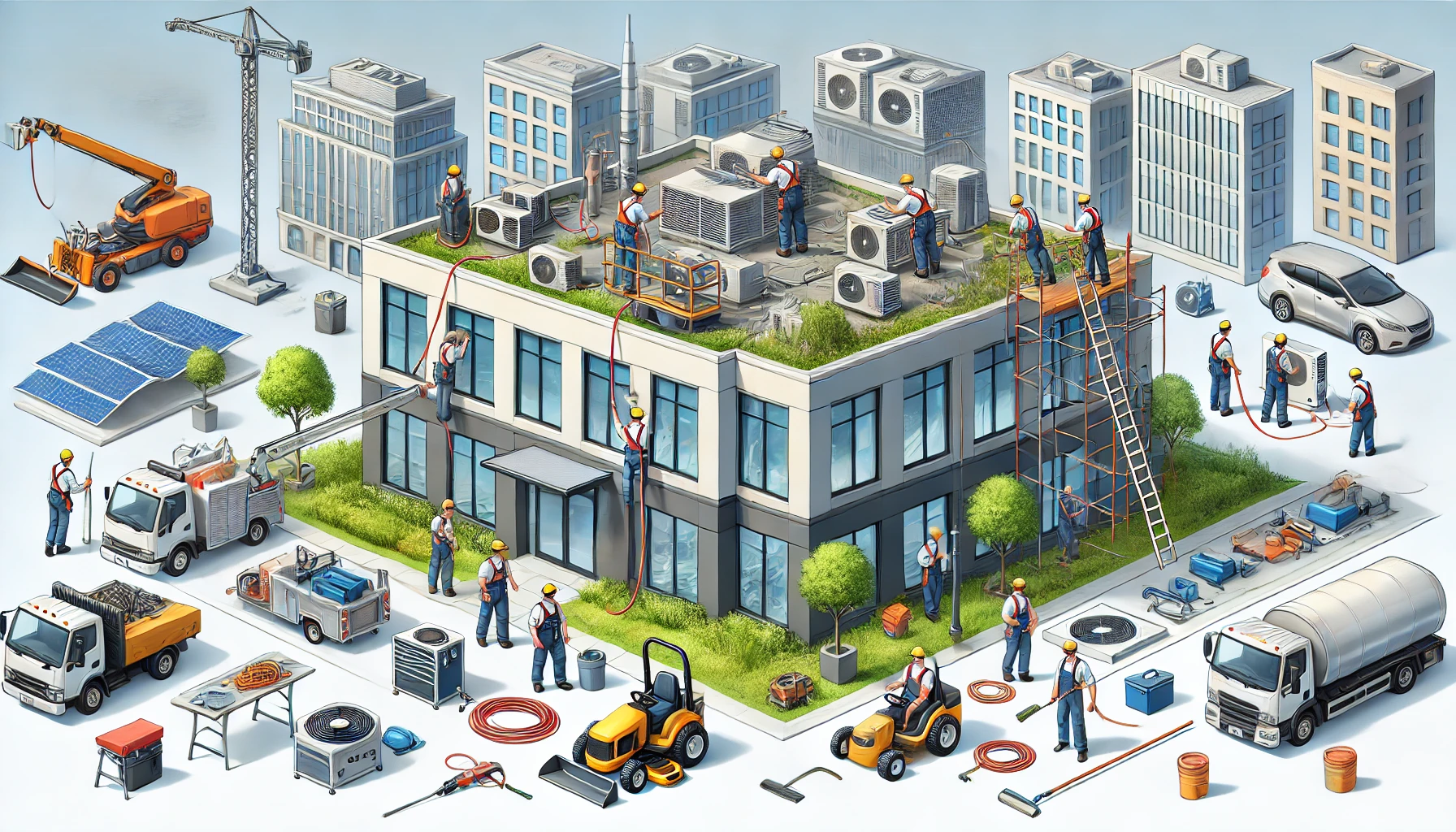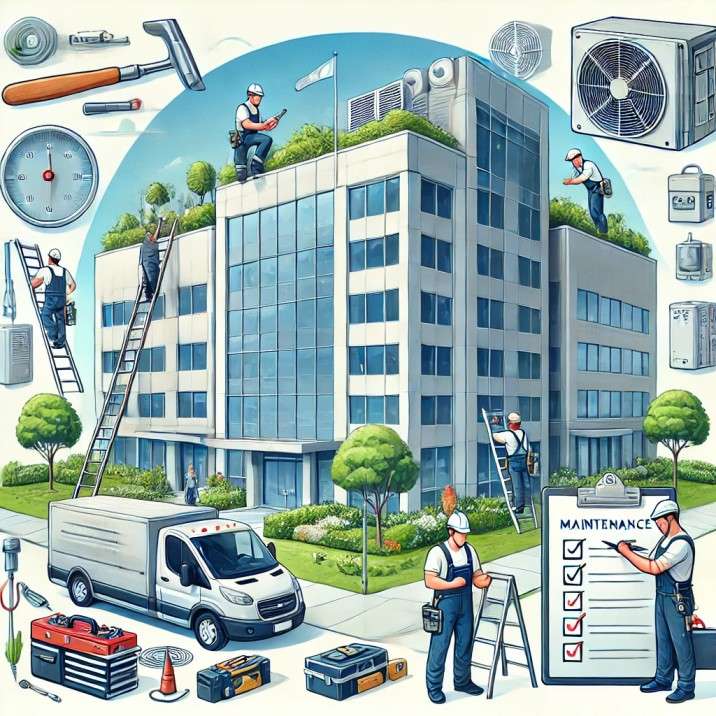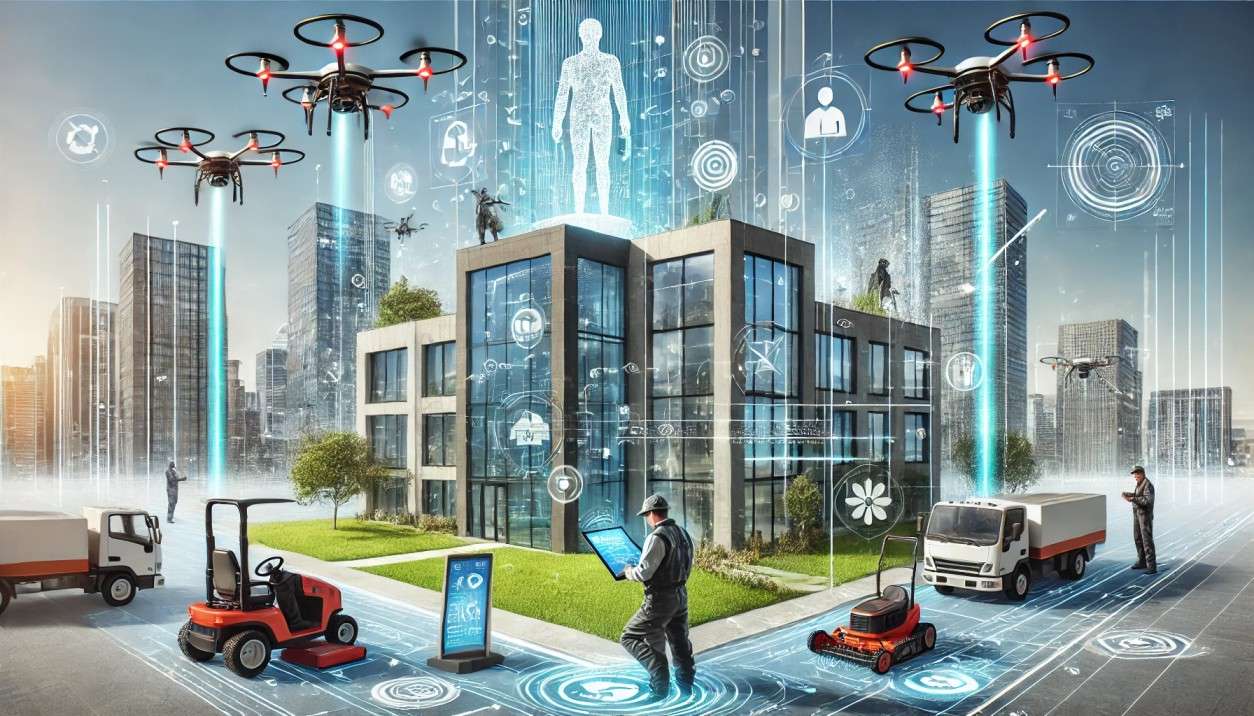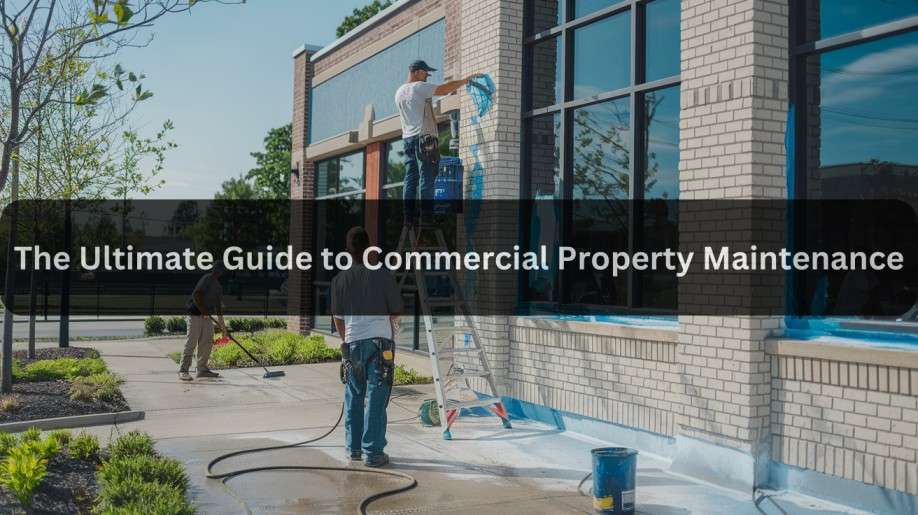Introduction
Maintaining a commercial property goes far beyond simply keeping it clean and visually appealing; it’s a critical investment that ensures the safety of occupants, boosts tenant satisfaction, and promotes operational efficiency. It also plays a vital role in preserving the long-term value of the property. Whether you manage an office complex, a bustling retail space, or a large industrial facility, consistent and thorough maintenance is key to avoiding costly disruptions and ensuring everything runs smoothly. By addressing both immediate needs and future challenges, effective maintenance reduces risks, prevents unexpected expenses, and keeps your property in top-notch condition.
In this guide, we’ll explore the fundamentals of commercial property maintenance, offering practical insights into best practices, the tangible benefits of proactive care, and how cutting-edge technology can streamline and enhance your efforts.
What Is Commercial Property Maintenance?

Commercial property maintenance refers to a comprehensive set of tasks and strategies designed to ensure that a building remains functional, safe, and visually appealing over time. It involves a proactive approach to addressing the operational and aesthetic needs of a property, which can range from routine inspections to emergency repairs. Beyond merely fixing issues as they arise, effective maintenance also focuses on preventive measures and the integration of energy-efficient solutions to reduce costs and environmental impact.
Key Components of Commercial Property Maintenance:
- Structural Maintenance: This includes essential repairs and upkeep of critical building systems such as roofs, plumbing, electrical wiring, and HVAC (heating, ventilation, and air conditioning) systems. These are vital for the smooth functioning and longevity of the property.
- Aesthetic Maintenance: A property’s appearance plays a significant role in creating a positive impression. Regular cleaning, painting, landscaping, and pest control are part of this category, ensuring the property remains attractive and welcoming to tenants, customers, or visitors.
- Compliance and Safety: Adhering to local regulations, fire safety codes, and accessibility standards is non-negotiable. Regular safety audits, updating fire systems, and ensuring ADA (Americans with Disabilities Act) compliance are crucial to minimizing legal risks and maintaining a safe environment for everyone.
By addressing these components effectively, property managers can maintain the value and functionality of their assets while ensuring tenant satisfaction and operational efficiency.
Why Is Commercial Property Maintenance Crucial?

Commercial property maintenance is far more than a routine obligation; it is a strategic endeavor that impacts every aspect of property management. A well-maintained property plays a critical role in creating an appealing environment that enhances tenant satisfaction. Happy tenants are more likely to renew leases, leading to reduced turnover rates and stable occupancy levels. Furthermore, preventive maintenance ensures that operations run smoothly by minimizing unexpected disruptions caused by equipment failures or building issues.
Financially, regular upkeep is a cost-saving measure. By addressing minor issues before they escalate, property managers can avoid costly repairs or replacements that could strain budgets. Another vital aspect of maintenance is ensuring safety and reducing liability risks. Proper upkeep helps prevent accidents, protects tenants and visitors, and ensures compliance with ever-evolving safety and legal standards. Overall, a strategic approach to maintenance safeguards the value of the property while fostering trust and satisfaction among its stakeholders.
Best Practices for Commercial Property Maintenance

- Adopt a Preventive Maintenance Schedule
A proactive approach is essential for effective property management. Establish a preventive maintenance schedule to conduct regular inspections of critical systems like plumbing, electrical components, and HVAC units. For instance, schedule bi-annual HVAC servicing and monthly plumbing checks to ensure seamless operations and reduce unexpected breakdowns. - Use a Comprehensive Maintenance Checklist
Create a detailed checklist tailored to your property’s specific needs. This should include everything from checking electrical systems and fire alarms to exterior maintenance tasks like landscaping and parking lot repairs. A well-crafted checklist ensures nothing is overlooked. - Incorporate Energy Efficiency
Energy-efficient upgrades are both eco-friendly and cost-effective. Replace traditional lighting with LED bulbs, install smart meters to monitor energy consumption, and optimize HVAC settings to maintain a comfortable indoor environment while reducing utility bills. These changes benefit the environment and enhance the property’s appeal to sustainability-conscious tenants. - Outsource to Professionals
Some maintenance tasks require specialized expertise. Partner with experienced service providers for areas like elevator maintenance, fire safety inspections, or deep cleaning of large spaces. Outsourcing ensures high-quality work while allowing your team to focus on core responsibilities. - Leverage Technology
Modern technology can revolutionize maintenance processes:
- Maintenance Management Software: Streamlines scheduling, tracking, and reporting, making it easier to stay organized.
- IoT Devices: Real-time sensors can monitor critical conditions like temperature and energy usage, alerting you to issues before they become major problems.
- Drones: Use drones for efficient and safe inspections of hard-to-reach areas, such as roofs or large outdoor spaces, saving time and reducing risk.
How Technology Transforms Property Maintenance

Predictive Maintenance
Advanced tools powered by AI and IoT enable predictive maintenance, allowing property managers to anticipate and address equipment failures before they occur. This not only reduces downtime but also lowers repair costs, making it a game-changer for efficiency.
Data-Driven Decisions
Technology provides access to valuable analytics, helping managers make informed decisions. By understanding usage patterns and identifying high-priority areas, resources can be allocated more effectively, saving both time and money.
Remote Monitoring
Smart systems enable remote management of HVAC, lighting, and security systems. These solutions improve energy efficiency, enhance tenant comfort, and ensure the property remains secure, even when managers are off-site.
Common Challenges in Commercial Property Maintenance
- Unforeseen Repairs: Unexpected issues can arise, disrupting budgets and operational schedules, leading to stress and inefficiencies.
- Budget Constraints: Limited financial resources make it challenging to balance cost-effectiveness with maintaining high-quality service standards.
- Regulatory Compliance: Staying updated on evolving safety regulations and building codes demands continuous monitoring and adaptability.
- Time Management: Managing multiple maintenance tasks simultaneously can overwhelm property managers without proper planning and delegation.
- Resource Allocation: Ensuring the availability of skilled personnel, equipment, and materials for maintenance tasks requires effective resource management.
- Aging Infrastructure: Older buildings often need frequent and costly repairs, which can strain financial and operational resources.
Solution:
- Strategic planning, the use of advanced technology, and effective resource allocation are essential to overcoming these challenges efficiently.
Conclusion
Regular and strategic commercial property maintenance is an indispensable part of property management. It ensures safety, enhances tenant satisfaction, and protects the long-term value of the property. By implementing best practices and leveraging innovative technologies, property managers can overcome challenges and meet modern demands effectively. Start prioritizing these strategies today to elevate the value and efficiency of your commercial property while building a strong foundation for future success.
Looking for reliable commercial property maintenance services in San Mateo? PMI Bay Property Management San Mateo specializes in thorough tenant background checks, ensuring you get trustworthy tenants every time. Contact us today for a free consultation and learn how our expert screening services, including CIC background checks, can protect your property and maximize rental success.
FAQs on Commercial Property Maintenance
What is commercial property maintenance, and why is it important?
Commercial property maintenance involves the regular upkeep, repair, and management of a building to ensure it remains functional, safe, and visually appealing. It is essential for enhancing tenant satisfaction, reducing costly repairs, ensuring safety compliance, and protecting the property’s long-term value.
How often should commercial property maintenance be performed?
Maintenance frequency depends on the type of property and its components. Routine checks like HVAC inspections should be done bi-annually, while plumbing and electrical systems may require monthly assessments. Preventive maintenance schedules should be tailored to the property’s specific needs.
What are the most common challenges in maintaining a commercial property?
Common challenges include unforeseen repairs, budget constraints, staying compliant with changing regulations, and managing aging infrastructure. Addressing these issues requires strategic planning, regular inspections, and the integration of modern technologies.
How does technology improve commercial property maintenance?
Technology plays a significant role in modern maintenance. Predictive maintenance powered by AI and IoT reduces downtime, data-driven analytics help prioritize repairs, and remote monitoring tools enhance operational efficiency. Drones and smart sensors also make inspections faster and safer.
Should I outsource commercial property maintenance, or manage it in-house?
Outsourcing is recommended for specialized tasks like elevator servicing, fire system inspections, or deep cleaning, as it ensures professional expertise. In-house teams can handle routine tasks if properly trained and equipped. A hybrid approach often provides the best results.


